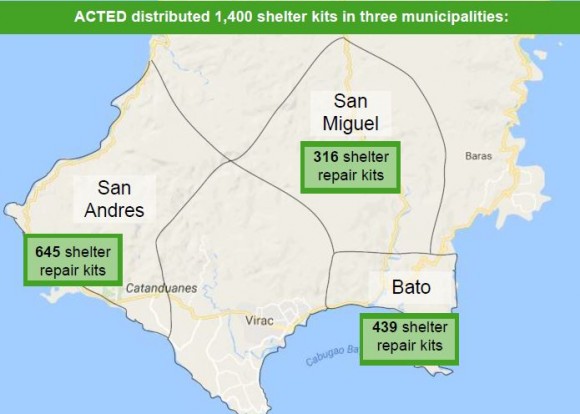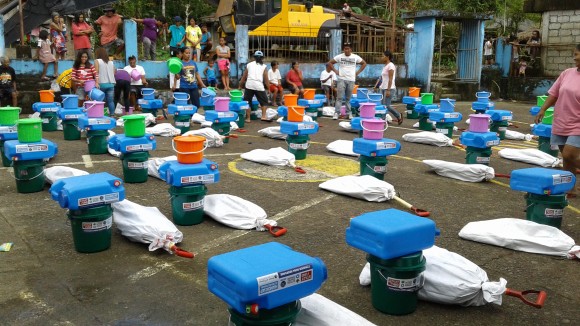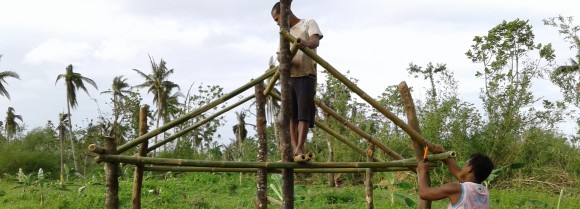Raising an alert to the START Network about the crisis sparked by typhoon Nock-ten, which struck the Philippines on 25th December 2016, ACTED and other INGOs enabled the quick release of a START Fund. It was created to fill a gap in humanitarian funding and enables NGOs to make collective decisions on the basis of need alone and respond quickly to ‘under the radar’ emergencies within 45 days. ACTED joined the START Network in May 2016: the emergency response to typhoon Nock-ten is the first operation implemented with funding from the START Network.
Providing Shelter kits to address urgent needs of vulnerable families
With this funding, ACTED provided shelter and water, hygiene and sanitation (WASH) assistance from the beginning of January until the end of February, in consortium with Action Against Hunger and Handicap International in the island province of Catanduanes, heavily struck by typhoon Nock-ten on Christmas 2016. In total, ACTED and its consortium partners distributed 1,400 shelter kits in the Bato, San Andres and San Miguel municipalities (Catanduanes province).

ACTED also raised awareness on build back safer techniques and hired cash-for-workers to help the most vulnerable families rebuild their home, reaching some 430 households. In parallel, the consortium partners distributed hygiene kits and provided hygiene promotion sessions in the same areas to the most vulnerable households, notably households with a person with disability or a pregnant/lactating women, and households headed by a single woman.
A lot of needs remain unmet
In spite of the shelter and hygiene interventions carried out by the consortium, needs remain important. Nock-ten first made landfall in the Catanduanes province, and about 90% of its population was affected by the typhoon, according to the Provincial Government, particularly in southern municipalities.

With 24,300 shelters partially damaged and 9,500 shelters completely destroyed, many families still need shelter assistance, particularly transitional shelters, but also additional kits. Similarly, as abaca plants, which constitute the main source of livelihoods, were destroyed, families will soon face a food security crisis: priority is now to address urgent food needs of these populations.
Advocating for a greater visibility of disaster-affected communities
Since Haiyan, the government of the Philippines has improved its preparedness and is now able to significantly reduce the number of casualties when natural hazards hit the country, which allowed to strengthen the resilience of populations affected by natural disasters.

Concerns now focus on the amount of assistance provided in the affected areas: only a small part of the food needs have been covered so far. NGOs strive to respond to the major issues and still important dire needs, but are facing difficulties in finding funds.